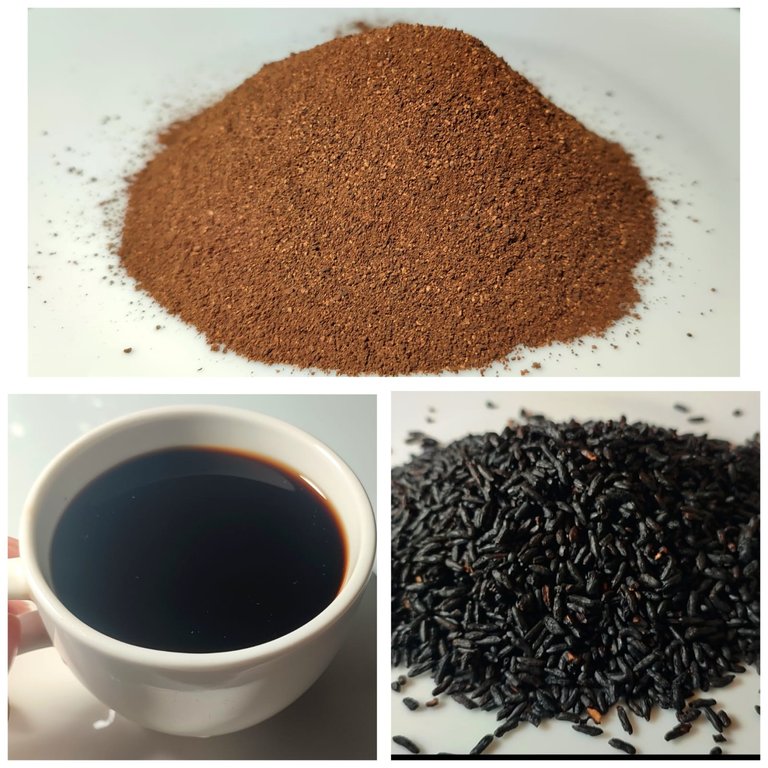
It has been pouring rain today, and I planned to stay in. I went to make coffee, but we ran out, so I made an alternative rice coffee, which we traditionally make in the Philippines. We call it "kapeng bigas," meaning rice coffee, and in our local village, it is called "tinutong na bagas," which means burnt rice. It is an old tradition in the Philippines and has been enjoyed by many generations, especially in the rural areas.
An early morning walk in some villages in the Philippines will greet you with the aroma of rice and coffee. In rural villages, making rice coffee for breakfast is usual.
It is caffeine-free and full of antioxidants, and some believe that it aids in digestion and improves gut health.
The beautiful aroma I woke up to when I was little reminds me of many things.
Here's how.
A little warning: It can wreck your pan, so use an old pan. It is smoky, so it's best to open the windows.
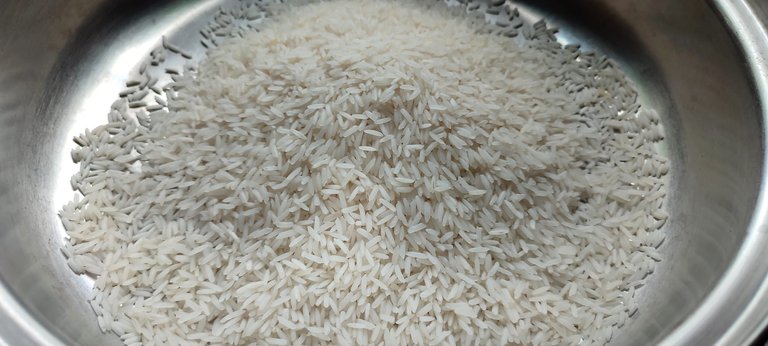
Heat a pan over medium heat and add the rice. I used jasmine rice.
Below are the stages of how the rice looked when roasted.
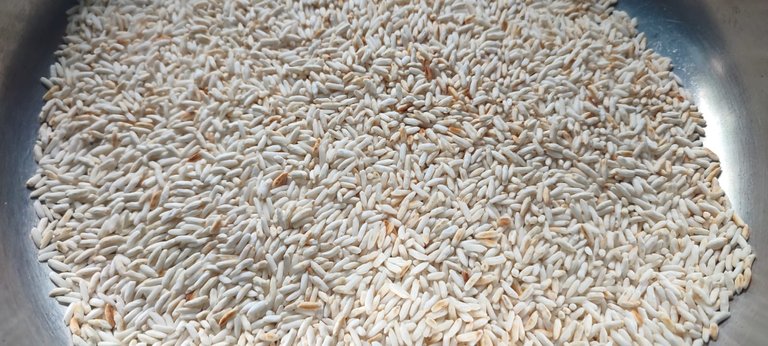
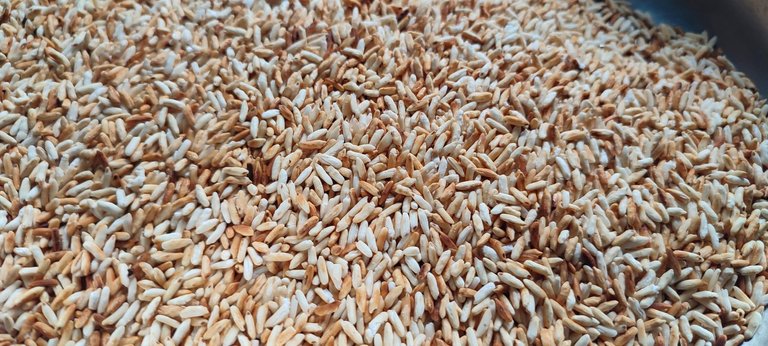
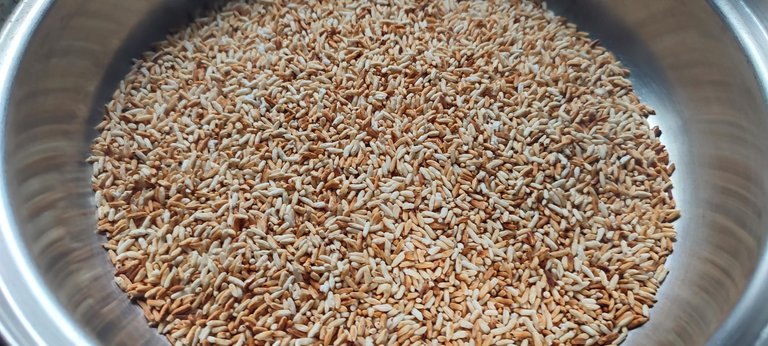
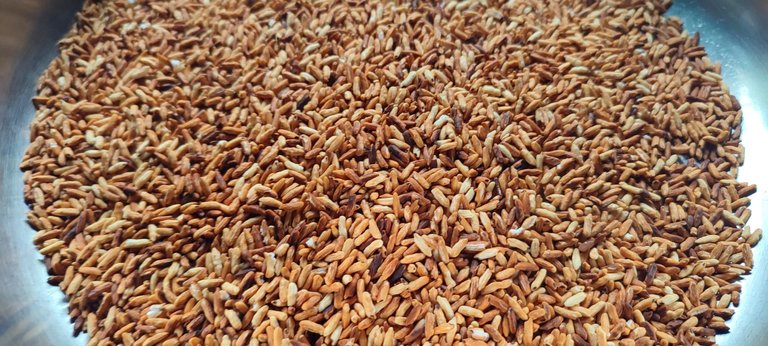
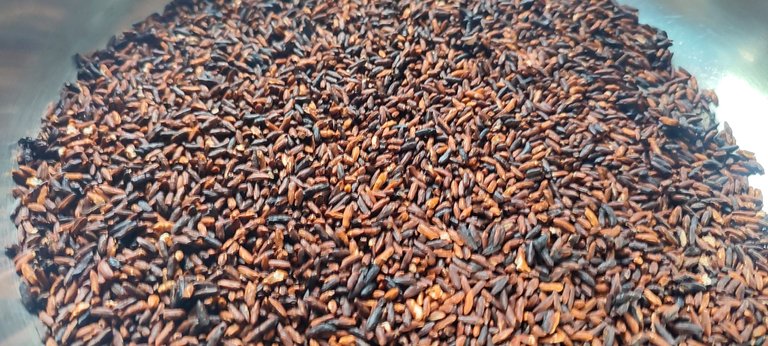
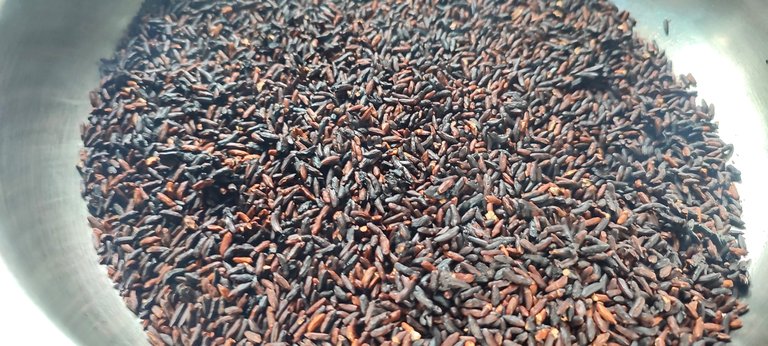
Roast the rice, stirring frequently, until it turns a deep brown color but is not burnt. This can take 10-20 minutes. The rice has its own oil and will still cook after the heat is off.
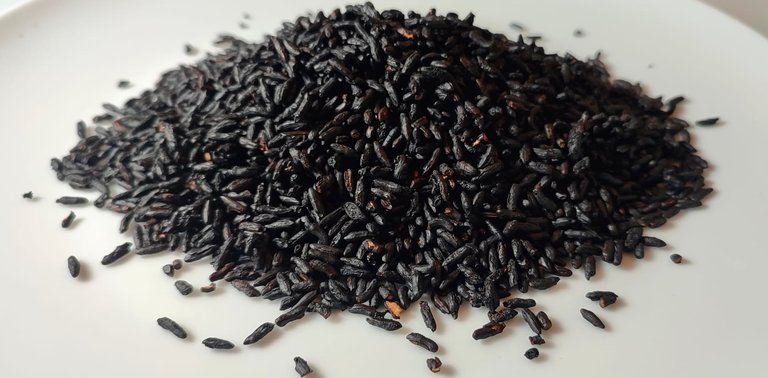
Let the rice cool completely.
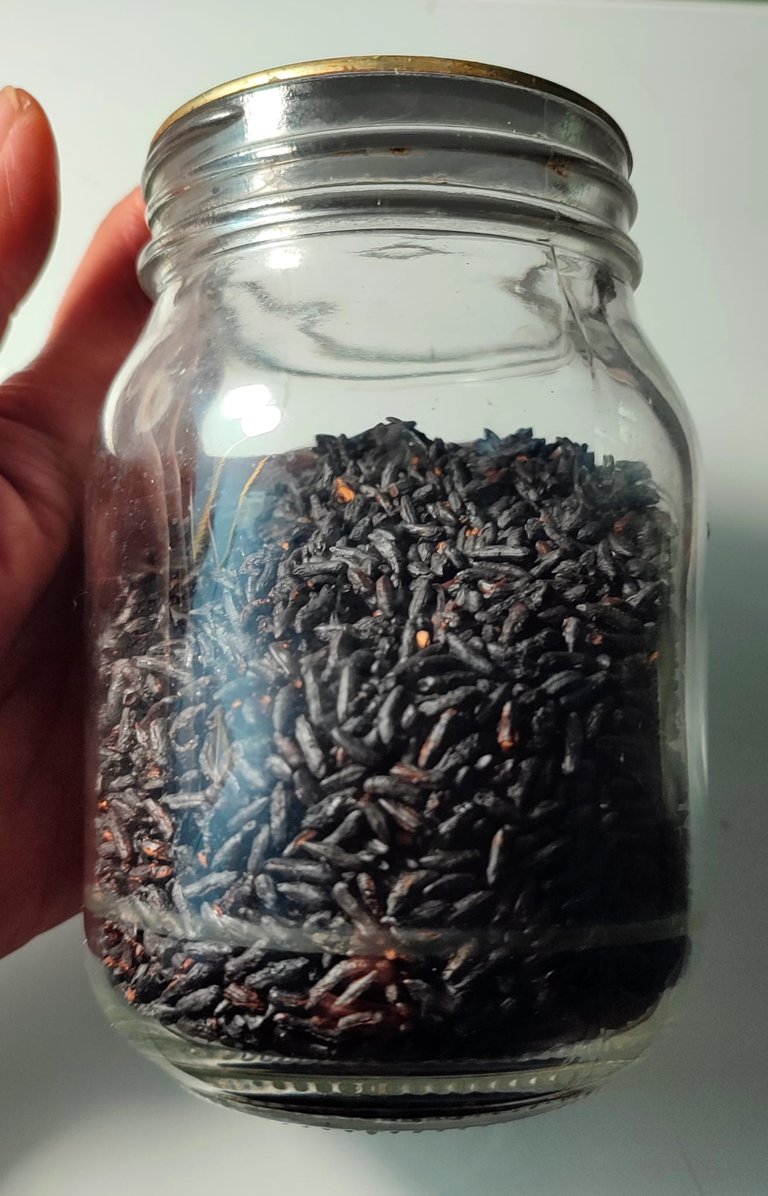
Store in a jar to keep them fresh.
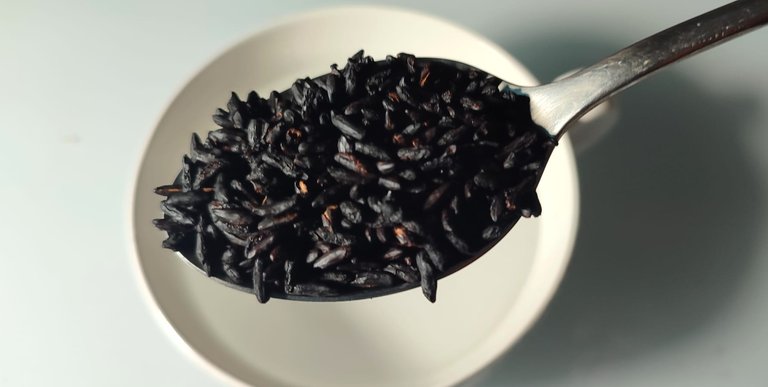
Add a couple of tablespoons of roasted rice to a cup of hot water to make the coffee. Let it steep for 5-10 minutes, then strain and serve.
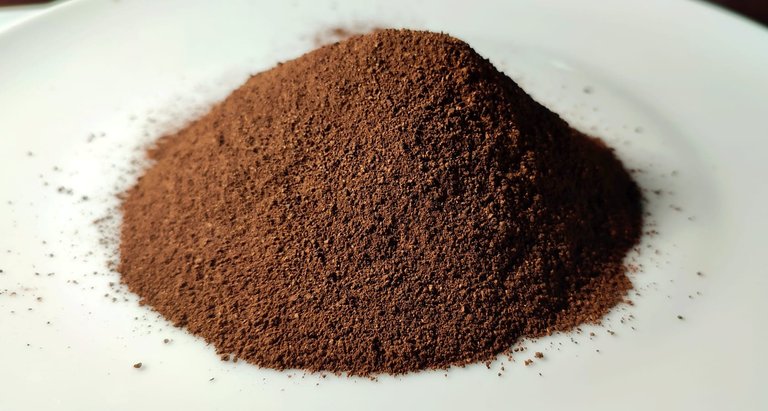
Alternatively, you can grind it in a coffee grinder and use a coffee maker.
It can be served hot or cold. Add milk if you prefer a creamier taste similar to a latte.
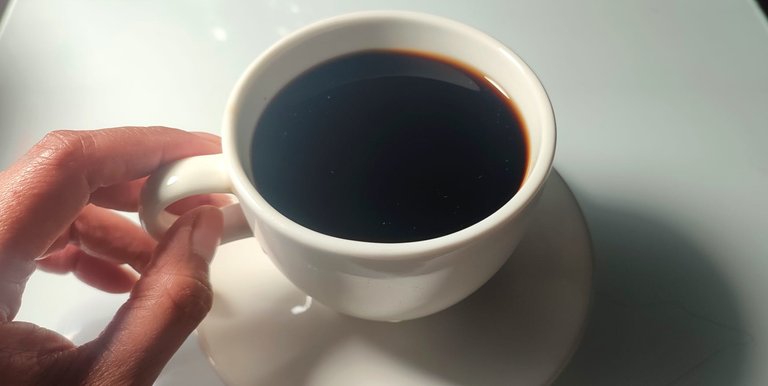
I enjoyed my stay-in today with my rice coffee, which brought back some beautiful memories of the old days. The taste is good and unique but not far from real coffee. It's a very good substitute.
Have a wonderful day, everyone.
Mariah ☕😊💗
The rewards earned on this comment will go directly to the people( @theworldaroundme ) sharing the post on Reddit as long as they are registered with @poshtoken. Sign up at https://hiveposh.com. Otherwise, rewards go to the author of the blog post.
Does it come from rice? Very interesting, I just saw this. Maybe next time I'll try it.
Yes it is, I used jasmine rice but you can use any type. Good luck in your try. 😊
What a wonderful recipe! I've never seen this preparation before, it was cool to learn all about the method ☕️
Thank you, I'm pleased. 😊
What an interesting post!
I got used to seeing corn coffee being sold at Gaisano Mall, but I never heard about rice coffee though.
Of that, I have no doubt.
Sounds like solid advice 👍
I'm not sure if I'd try this, but I would enjoy watching Filipinos drink it and act 'boang' early in the morning 😆
haha! I have not heard of corn coffee, something I would like to try. I am impressed that you know "boang". I am that sometimes, haha! 😊
I think all Filipinos are 😆
The quality of the coffee I got in the Philippines was good; from Baguio, Batangas, Davao, Negros, and many other islands that I got coffee from when I lived in Moalboal:)
Maybe you are right, it is in the genes. Haha! and wow! I have not even been to Moalboal. They have good coffee and also the instant coffee. The kape barako will make you jump all day.😍
Yeah, I lived in Moalboal for 7 years, but I'm back home in the UK now.
Oh, dear! I can imagine that 😆
Amazing 😍
Congratulations @theworldaroundme! You have completed the following achievement on the Hive blockchain And have been rewarded with New badge(s)
Your next target is to reach 600 comments.
You can view your badges on your board and compare yourself to others in the Ranking
If you no longer want to receive notifications, reply to this comment with the word
STOPA very good tutorial on making typical Filipino coffee. I just found out that rice can be made into coffee. Does it taste the same?